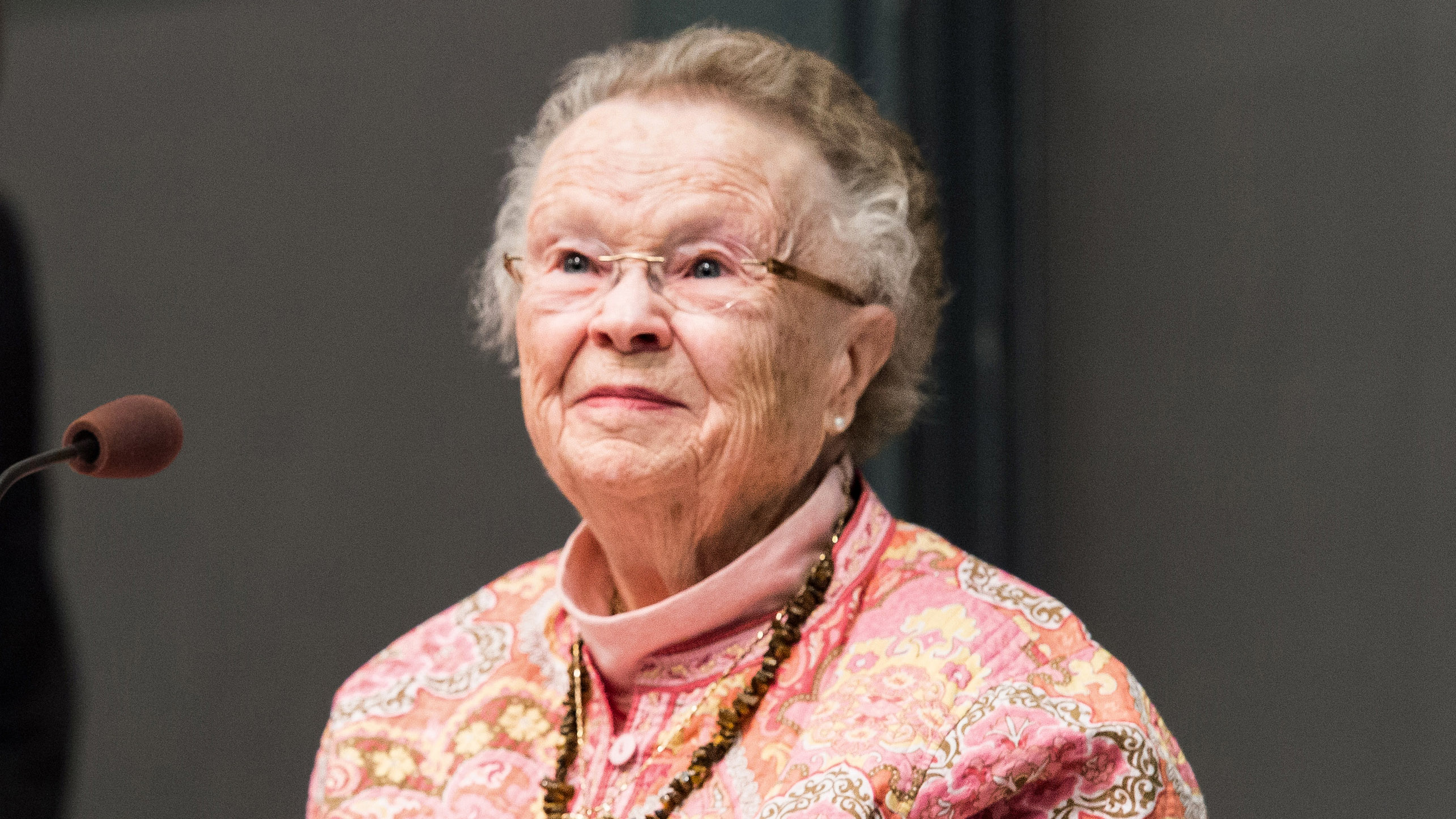‘Mother of all of us’
Priscilla King Gray, who died in February, helped build a sense of community at MIT for more than half a century.

Priscilla King Gray, the wife of former MIT president Paul Gray ’54, SM ’55, ScD ’60, and cofounder of the MIT Public Service Center (since renamed the PKG Center), died February 8 at age 89.
In more than 50 years at the Institute, beginning when her husband joined the faculty in 1960, Gray made an indelible mark, especially through the center that she founded in 1988 with the late Shirley McBay, then dean of student affairs. She served as cochair of its steering committee for 23 years and was “a true strategic thought partner” throughout its evolution into an organization whose vision of public service is now long-term, community-informed, and academically aligned, says associate dean Jill Bassett, its current director.
But she also played a much more personal role for generations in the MIT community. Through her community activities and the embroidery classes she taught for years, Gray learned a great deal about students’ opinions and needs, helping her offer invaluable advice to her husband. And when he became president, she started a tradition of dinners for undergraduate seniors in what is now Gray House. “I wanted to somehow make sure every MIT student had been in the president’s house once,” she told the MIT Infinite History project.
“Priscilla was the mother of all of us who were students at MIT,” says Hyun-A Park ’83, MCP ’85, a member of the MIT Corporation and former president of the Alumni Association.
Gray was named an honorary member of the MITAA in 1977 and received its Harold E. Lobdell ’17 Distinguished Service Award in 1985. In 1990, she received the Bronze Beaver, its highest honor.
“As I’m learning,” says MIT’s new president, Sally Kornbluth, “Priscilla’s name is synonymous with public service at MIT—a fitting legacy for someone who believed deeply in our students and their capacity to do good in the world.”
Keep Reading
Most Popular
Large language models can do jaw-dropping things. But nobody knows exactly why.
And that's a problem. Figuring it out is one of the biggest scientific puzzles of our time and a crucial step towards controlling more powerful future models.
How scientists traced a mysterious covid case back to six toilets
When wastewater surveillance turns into a hunt for a single infected individual, the ethics get tricky.
The problem with plug-in hybrids? Their drivers.
Plug-in hybrids are often sold as a transition to EVs, but new data from Europe shows we’re still underestimating the emissions they produce.
Google DeepMind’s new generative model makes Super Mario–like games from scratch
Genie learns how to control games by watching hours and hours of video. It could help train next-gen robots too.
Stay connected
Get the latest updates from
MIT Technology Review
Discover special offers, top stories, upcoming events, and more.